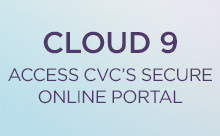Take Care, Caregiver
We found this article so incredibly helpful. From our friends at Pulmonary Hypertension Association:
As a caregiver for someone with pulmonary hypertension, you spend a good deal of your time thinking about someone else. When your day-to-day concerns are tied to someone else’s comfort, it’s possible to put your own physical and mental health on the back burner.
While you may feel as if you don’t have time to tend to your own needs, the truth is that the most effective and supportive caregivers are those who also take time for themselves. Read over the tips below to make sure you’re giving yourself the attention you deserve.
15 Tips to Help You Care for Your Family Yourself
- Eat smart and exercise. You’ll be surprised at the energy you’ll gain from choosing nutritious foods and finding time for some daily physical activity.
- Get plenty of rest.
- Be kind to yourself. Give yourself credit for what you do.
- Set realistic goals and expectations.
- Cut yourself some slack. Nobody’s perfect. Even the best caregivers occasionally find themselves getting impatient, stressed or frustrated. Learn to think about these feelings not as evidence of your failure but as cues that you need some time to yourself.
- Schedule “me time.” Caregiving is a job and rest is your earned right. Reward yourself with respite breaks often.
- Set limits and let everyone know what they are.
- When people offer to help, accept the offer and suggest specific things they can do.
- Watch for signs of depression, and don’t delay in getting professional help when you need it.
- Grieve your losses, and then allow yourself to dream new dreams.
- Learn what helps you relieve stress – keep a list and use it. Try walking, reading, listening to music, take up a new hobby, or take a nap!
- Remember your spiritual health. You can make good use of your own spiritual beliefs to cope during difficult times. Many caregivers find great solace in meditation, prayer or time spent in nature.
- Share your feelings with family and friends.
- Seek support from other caregivers. There is great comfort in knowing that you are not alone. Talk with other caregivers at PH support group meetings, and try to arrange for a caregiver support group to be held at the same time as your local patient group. Also be sure to sign up for our email group for caregivers and other family members of PH patients. Join PHA Caregiver now (Requires a free Google account. Please allow a short delay while your group membership is processed.)
- If it gets to be “too much,” talk to your doctor, another healthcare professional or a member of the clergy.
Comments to our stories are welcomed, and are intended to offer a forum for engaging readers in the conversation. While we do not actively moderate comments, we do ask that they remain respectful and civil. Every person’s journey is unique, and each perspective is valuable to us. We will not approve comments that contain profanity, could be considered abusive, are threatening in nature, or otherwise violate the terms of our Privacy Policy. If you view a comment that seems to violate these terms, we encourage you to contact us and we will review it.









